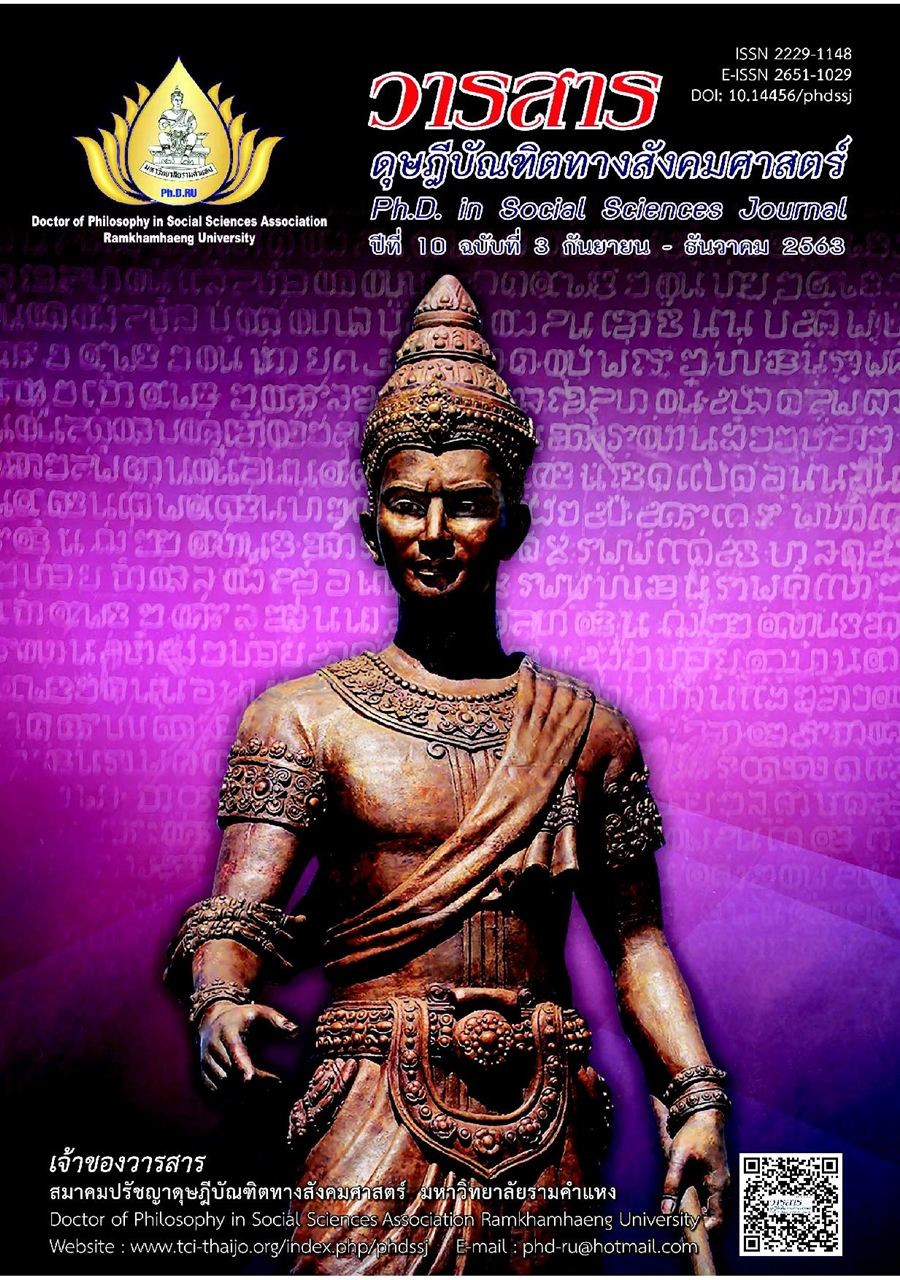School Administration in the Crisis Situation of the Coronavirus 2019 (COVID-19)
Main Article Content
Abstract
This academic article aims to analyze the school administration in the coronavirus crisis situation (COVID-19),using situational leadership concept, government policies and the concept of school administration as a framework for analysis in order for educational institutions to focus on the implementation of the government policy under strict measures to prevent the spread of the coronavirus 2019.
Findings are as follows: (1) school administrators should focus on implementing the government policy including the use of cooperation mechanisms of parents and communities in the care of students with the utmost safety in mind under the crisis that arises. The school administrators should take into account the maximum safety of everyone involved. All students should have access to teaching and learning. They should utilize existing resources to the highest benefits to enable students in all levels to study through DLTV. Policy decisions should be based on survey for the needs of students, teachers and schools. and (2) School administrators should focus on the role of administrators by creating self-worth to demonstrate exemplary role. The conduct of the management including fairness to subordinates in matters of welfare and progress. The management must direct subordinates to participate in decision-making, encourage subordinates to take responsibility, have freedom in thought and understand the various problems that are occurring to the organization. Subordinates who put efforts will get through the problems. Focus should be on the surrounding circumstances which define the role of the stakeholders in the decision-making and affect the leadership characterization of the management. School administrators need to learn and support the use of communication and computer technologies.
Article Details
Academic articles, research articles, and book reviews in the Ph.D. in Social Sciences Journal are author’s opinions, and not the publisher’s, and is not the responsibility of the Ph.D. in Social Sciences Journal Philosophy Association, Ramkhamhaeng University. (In the case that research is done on human, the researcher has to be trained in Ethics for Doing Research on Human Training and has to produce the evidence of the training).
References
Barnard, C. (1968). The functions of the executive. Harvard University Press.
Campbell, D. F., Johnston, R. W., Campbell, G. S., McClain, D., & Macaluso, J. F. (1983). The microbiology of raw, eviscerated chickens: A ten year comparison. Poultry Science, 62, 437-444.
Certo, S. C. (2008). Modern management (11th ed.). Prentice Hall.
Dale, E. (1973). Management: Theory and practice. McGraw-Hill.
Department of Health. (2020). A practical guide for schools to prevent the spread of COVID-19. Author. [In Thai]
Drucker, P. F. (1954). The practice of management. Harper & Row.
Duangchurn, P. (2020). The new normal in educational administration after the Covid-19 crisis. Journal of Arts Management, 4(3), 783-795. [In Thai]
Gorton, R. A. (1983). School leadership and administration: Important concepts. McGraw-Hill.
Gregg, R. T. (1957). The administrative process. In R. F. Campbell, & R. T. Gregg (Eds.), Administrative behavior in education (pp. 269-317). Harper and Brothers.
Hoy, W., & Miskel, C. (2001). Educational administration: Theory, research, and practice (6th ed.). McGraw-Hill.
Koontz, H. (1972). Analysis of managerial functions. McGraw-Hill.
Krajewski, R. J., Martin, J. S., & Walden, J. C. (1983). The elementary school principalship: Leadership for the 1980s. Holt, Rinehart, & Winston.
National Education Act B.E. 2542. (2019). Retrieved from http://web.krisdika.go.th/lawHeadPDF.jsp?formatFile=pdf&hID=0 [In Thai]
Petersen, E., Plowman, E. G., & Trickett, J. M. (1962). Business organization and management. Irwin.
Sargent, C. G., & Belisle, E. L. (1955). Educational administration: Cases and concepts. Houghton Mifflin.
Sergiovanni, T. J., & Carver, F. D. (1980). The school executive: A theory of administration (2nd ed.). Harper & Row.
Simon, H. A. (1976). Administrative behavior: A study of decision-making processes in administrative organization (3rd ed.). The Free Press.
The Reader’s Digest Encyclopedia Dictionary. (1964). Reader’s Digest Association.
Yukl, G. (2006). Leadership in organizations (6th ed.). Pearson Education.


